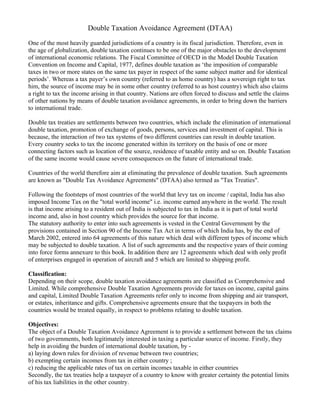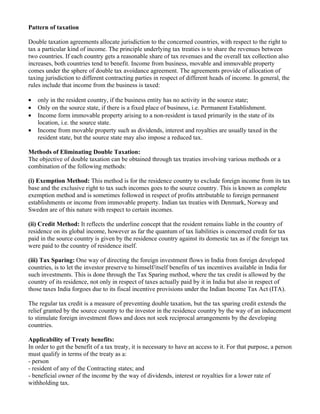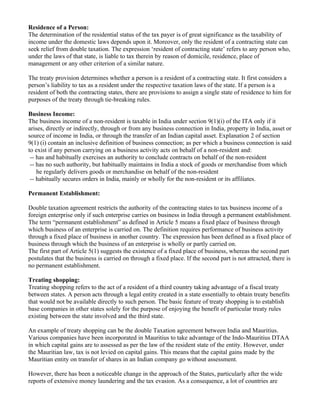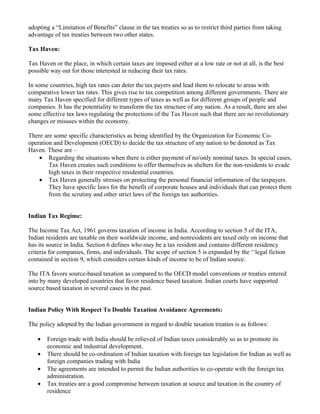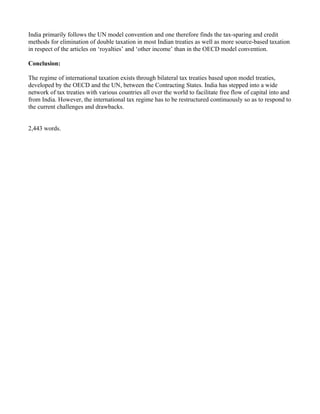Double taxation occurs when the same income is taxed by both the country where it originates (source country) and the country of the taxpayer's residence (residence country). To reduce barriers to international trade, countries often negotiate double taxation avoidance agreements (DTAAs) which allocate taxing rights between the two countries. India has entered into over 60 such agreements. DTAAs aim to eliminate double taxation through methods like exemption (one country does not tax) or tax credit (residence country provides credit for taxes paid in source country). They define terms like permanent establishment that determine when business income can be taxed in the source country. DTAAs and limitations of benefits clauses help prevent treaty shopping where third parties get benefits not
